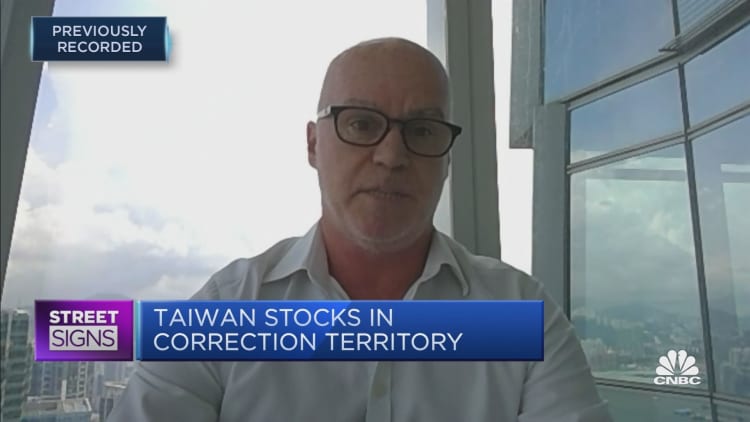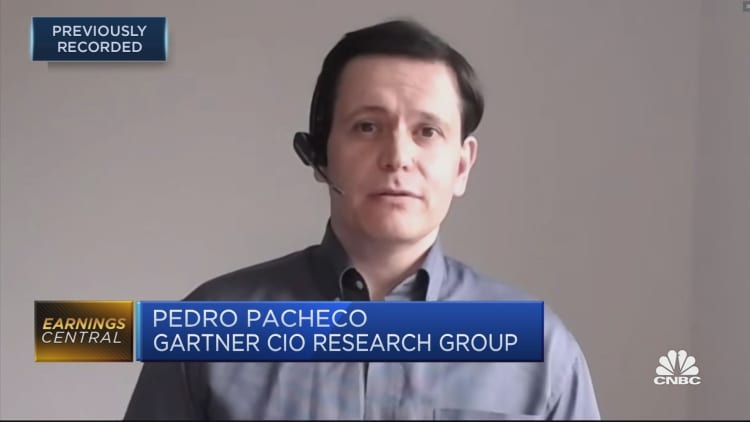Tiny pieces of silicon with intricate circuits on them are the lifeblood of today's economy.
These clever semiconductors make our internet-connected world go round. In addition to iPhones and PlayStations, they underpin key national infrastructure and sophisticated weaponry.
But recently there haven't been enough of them to meet demand.
The reasons for the ongoing global chip shortage, which is set to last into 2022 and possibly 2023, are complex and multifaceted. However, nations are planning to pump billions of dollars into semiconductors over the coming years as part of an effort to sure up supply chains and become more self-reliant, with money going toward new chip plants, as well as research and development.
South Korea became the latest country to announce a colossal investment in the industry last week. The nation's government said Thursday that 510 trillion South Korean won ($452 billion) will be invested in chips by 2030, with the bulk of that coming from private companies in the country.
Abishur Prakash, a geopolitical specialist at the Center for Innovating the Future, a Toronto-based consulting firm, told CNBC by email that it's a "a wartime-like effort by South Korea to build future security and independence."
"By building massive chip capabilities, South Korea will have the power to decide its own trajectory, instead of being forced in a specific direction," added Prakash. "This is also about not depending on China or Taiwan. By investing hundreds of billions of dollars, South Korea is ensuring that it is not pegged to other nations for its critical technology needs."
Through the so-called "K-Semiconductor Strategy," the South Korean government said it will support the industry by offering tax breaks, finance, and infrastructure.

In a speech on May 10, South Korean President Moon Jae-in said: "Amid the global economy's grand transformation, semiconductors are becoming a sort of key infrastructure in all industrial areas."
He added: "While solidly keeping the status of our semiconductor industry as the world's best, we will safeguard our national interests by using the current semiconductor boom as an opportunity for a new leap forward."
But South Korea isn't leading on all fronts. "In sheer manufacturing capacity, Taiwan is #1 and South Korea is #2, with the U.S. in third place and China gaining quickly," Glenn O'Donnell, VP and research director at analyst firm Forrester, told CNBC.
South Korea has a commanding lead in memory chips with a 65% share, largely thanks to Samsung, he said. He added that Asia as a whole dominates in manufacturing, with 79% of all the world's chips produced on the continent in 2019.
O'Donnell said it's "difficult to say" whether the investment will help South Korea seize the global chipmaking crown in the way that it wants to. "This is a monumental investment, but the U.S., Taiwan's TSMC, and the Chinese are also investing heavily," he said.
Deep pockets
South Korea's investment is being led by two of its biggest chip firms: Samsung Electronics and SK Hynix.
Samsung Electronics — the nation's biggest chipmaker and a rival to Taiwan's TSMC — is planning to invest 171 trillion won in non-memory chips through 2030, raising its previous investment target of 133 trillion won, which was announced in 2019.

Elsewhere, SK Hynix, a semiconductor supplier of dynamic random-access memory (DRAM) chips and flash memory chips, is planning to spend 230 trillion won in the next decade. A spokesperson for SK Hynix told CNBC that the company will spend 110 trillion won on its existing production sites in Icheon and Cheongju between now and 2030. It is also investing 120 trillion won into four new factories in Yongin, and separately plans to double the amount of chips it produces at its foundry business.
Prakash said the world should be shocked at the size of the South Korea's overall war chest. "With almost half a trillion dollars, and the involvement of more than 150 companies, South Korea is moving mountains to secure its place in the future," he said.
U.S., China and EU also investing
South Korea's pledge comes after U.S President Joe Biden proposed a $50 billion plan for chipmaking and research, while China's Xi Jinping has pledged to spend on high-tech industries, with a big emphasis on semiconductors. The EU said in March it wants 20% of the world's semiconductors to be manufactured in Europe by 2030, up from just 10% in 2010.
"In the ongoing battle for dominance in the technology field, all nations are jockeying for that all-important designation as the key supplier to the world," said Forrester's O'Donnell. "South Korea, Japan, the U.S., Taiwan, the EU, and China all covet that gold medal in the Tech Olympics podium."
O'Donnell noted that it takes about two years to build a chip manufacturing plant, or a fab. "Each fab will cost upwards of $10 billion, but all the money in the world won't solve the chip shortage quickly nor will it guarantee that gold medal."

He added: "Geopolitical tensions also play into the dynamics. South Korea always lives under the threat from North Korea that will destabilize its tech position if things heat up too much across the DMZ. Taiwan, arguably the biggest current semiconductor supplier faces a similar threat as tensions heat up with mainland China."
Outside South Korea, all of the major chip manufacturers have announced big investments of their own.
TSMC has pledged to spend $100 billion over three years to grow its production capacity, while Intel is planning to build two new factories in Arizona with $20 billion. Both companies have also been in discussions about a new European factory, according to reports.
Elsewhere, Chinese chipmaker SMIC said Friday it is working rapidly to expand capacity with some plans moving ahead of schedule. Haijun Zhao, the CEO, said on an earnings call that semiconductor demand in every customer segment continues to exceed supply.
SMIC posted a 22% jump in first quarter sales to $1.1 billion and raised its sales outlook for the first half of the year.

